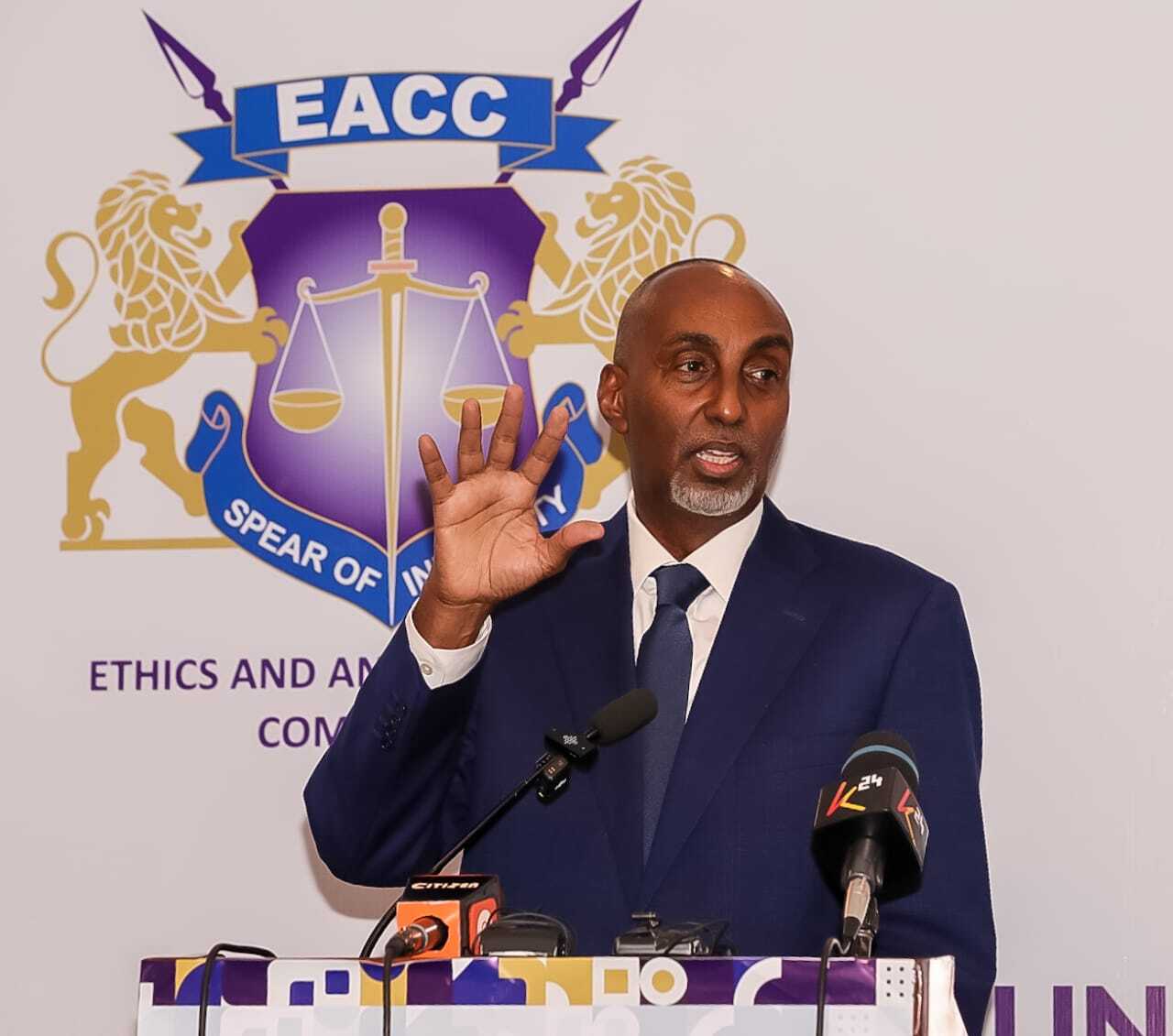No more lavish gifts: EACC issues tough rules on donations to public officers

Any gift, donation, or benefit, when given to a State or public officer on a public or official occasion, shall be treated as a gift or donation to the State and must be surrendered to the Republic unless exempted under an Act of Parliament.
This directive is part of the Ethics and Anti-Corruption Commission's (EACC) new guidelines aimed at ensuring transparency and preventing corruption within public institutions.
The Commission has emphasized that state and public officers must uphold the highest ethical standards and avoid compromising their integrity for personal gain.
EACC CEO Abdi Mohamud, in a notice on Thursday, highlighted the importance of these guidelines.
"The offer and receipt of gifts must be transparent and open, with no room for secrecy or conflict of interest," said Mohamud.
According to the guidelines, gifts that are non-monetary and valued at twenty thousand shillings or less can be accepted.
However, gifts that could influence an officer’s decisions or create a conflict of interest are strictly prohibited.
Permitted and prohibited gifts
Under the new regulations, public officers may accept non-monetary gifts, such as tokens of appreciation, as long as they do not exceed Sh20,000 in value.
However, any gift that could potentially create a conflict of interest or compromise an officer's objectivity is prohibited.
Gifts in the form of cash, jewelry, precious metals, or items from entities with interests in government dealings are strictly forbidden.
"Public officers must declare all gifts received to their respective entities, regardless of their value, to ensure that these gifts are handled appropriately,” Mohamud emphasized.
The public entity will decide whether the officer can retain the gift or if it must be surrendered.
The guidelines stress the need for transparency in accepting gifts. Public officers are required to declare all gifts to their public entity, ensuring that both the giver and the recipient are visible during the exchange.
Gifts surrendered to public entities can either be used by the entity or disposed of according to the Public Procurement and Asset Disposal Act.
To further enhance accountability, public entities must maintain a Register of Gifts, Donations, and Other Benefits in Kind, which must be updated regularly.
These entities are also required to submit an annual report to EACC detailing all gifts received, even if none were received during the year.
With low compliance rates observed across public offices, the EACC has urged public officers to adhere strictly to these new rules to help maintain public trust in government institutions.
"Our commitment to transparency is vital for upholding the integrity of public service," said Mohamud.
